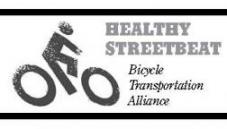
In just a few short weeks, the Portland’s free rail zone for both TriMet light rail and the streetcar will end its more than 37 year history. The concept was adopted in 1975 to combat limited parking and air pollution and was initially referred to as Fareless Square. However, due to budget restrictions, the program is ending at the close of August.
The days of hopping on a train or streetcar downtown and going a few blocks is over. Will this mean a sharp increase in people driving downtown? We don’t know. People typically don’t get in a car to drive a few blocks anyway. It is more likely to cut out trips entirely. This could have more of a financial impact to restaurants and small businesses than anything else. There have been many times that I’ve jumped on a train both to save time and extend my noon lunch choices. I’m lucky, though. I can jump on my bike and take that short, simple trip by bike in as short if not a shorter amount of time.
Perhaps I’m an optimist, but here’s to hoping that the end of the free rail zone will bring about an increase in people walking. I find that people often have misconceptions about how long it takes and how easy it is to walk. I can walk from my office at NW Glisan and NW 6th all the way to City Hall in less than 20 minutes. Meanwhile, I’m getting a good 20 minutes of moderate physical activity. The other optimistic part of me wonders if more people will choose bicycling as an option when working downtown.
There are many people who will be impacted negatively by this policy: downtown workers who cannot afford the additional fees, especially those with physical disabilities that might make it difficult to take a 20 minute walk. Will losing the zone box people in, particularly seniors, who can experience many low cost to free activities throughout the day?
The pessimist in me asks: “Does it really matter?” After all, it is so rare that they enforce payment of fares, anyway. Couldn’t someone just walk on and off if they spy an inspector coming? Sure, but there is a big financial risk in doing so. Fines are typically $175.
The real issue here is that we need to support transit to an adequate level so that we can accomplish core goals that Portland has established in reducing congestion and carbon. The budget crisis at TriMet is not because they are mismanaging our money, it is because the United States spends more money to subsidize the construction of roads for cars that travel without a daily use pass than we do to support transportation systems that accomplish so much more. One might call our roads fareless zones – or even fairless zones.
So let’s hop on the rails for a few more trips before the end of the Fareless era. If you go shopping or to a restaurant on your trip, let that business owner know that you got their because of the free rail zone and ask them to speak up in support of enewing it. Or join me on Aug. 31 at noon when I hop on and take one last free trip to a food cart pod.
